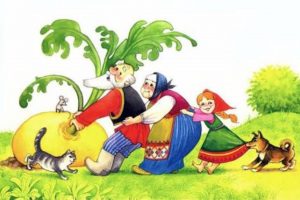
This month we welcome columnist Olga Steklova back to the Native Language blog. A retired EAL teacher at ISB and trilingual herself, Olga shares tips for raising multilingual children—as she observes her own grandchildren!
The holidays are around the corner. We are excited, as we will see our daughter and family in just a few weeks!
Extended families play extraordinary roles in children’s lives and development—whether children are multilingual or not, and whether they live near or far. For families scattered around the globe, like my own family, holidays become those rare and precious occasions when children—as well as adults—can catch up on family history and family news, engage in favorite family games and activities, routines and celebrations. These reunions are perfect opportunities to support and enrich language development and reinforce cultural ties, and in our case, to make contributions to raising multilingual grandchildren!
Our trilingual grandchildren—Michelle, now almost four-and-a-half, and Maxim, almost two and a half—alternate spending holidays with both sets of their grandparents, Russian and French. Each visit results in a boost to one of their languages. The value of these visits cannot be overestimated. They are short but productive, devoted totally to family catching up and bonding. Both sets of grandparents can be proud of promoting linguistic, intellectual and emotional development of their grandchildren. Bravo!

Most Russian folk tales recognize the exceptional role of grandparents; Grandma and Grandpa are often the main characters in the stories. The famous folktale about the giant turnip is beloved by children, told and retold in many languages. Whether it tells about pulling a giant turnip, a giant potato, or a giant carrot, it reinforces a well-known and totally sensible idea: It takes the effort of more than one person—or rather, diverse personalities—to do a complex job. Children thrive when they participate in meaningful and authentic activities, guided by adults. And these adults are often their grandparents. What is more, the act of, so to speak, ‘pulling giant turnips’ in Russia might differ culturally and linguistically from ‘pulling giant turnips’ in France or the UK.
Each activity where children are active participants will stimulate their emotional, intellectual and linguistic growth. Children who are learning to navigate the world in several languages benefit from maximum exposure to diverse linguistic settings and diverse speakers of each language.
Here is an incomplete list of language enrichment activities for the holidays: traveling to different geographical locations, shopping and cooking, sightseeing, visiting museums, telling and retelling stories, reading books, visiting friends, playing games, learning something new.
Through these activities, children will encounter new vocabulary and cultural ways of speaking, doing and thinking. They will also gain flexibility communicating across different age groups, and listening to different points of view. They wil learn to express ideas, concepts and emotions with more richness and precision. When all of this happens in different languages, their thoughts and expressive language acquire additional depth, nuances and shades of meaning. And that in turn positively affects all aspects of their development.
Sometimes, perhaps not too often, parents are apprehensive about entrusting their children to grandparents, for fear of upsetting the regular adopted rules and routines, of not being able to discipline children enough—for fear of losing control. Of course, negotiating and setting some sensible norms should be part of family communication and planning.
When this is done, enjoy the holidays, reap the benefits of extended family support, and be sure—languages will thrive!

December 4, 2017 at 8:04 am
Love your work Olga!
December 4, 2017 at 3:04 pm
I agree completely Olga with your though and analysis.
for children, live in an extended family with different languages, customs is a priceless enrichment.
and above all, when the education is similar in many points, it is marvellous.
our children are very lucky!!!